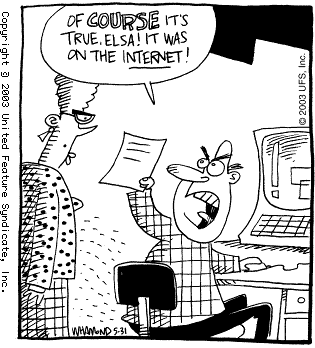Dallas Fed President, Robert McTeer,
sings the praises of the dismal science and it's practitioners and suggests better economic education of the public would be a good thing.
My take on training in economics is that it becomes increasingly valuable as you move up the career ladder. I can't think of a better major for corporate CEOs, congressmen or American presidents. You've learned a systematic, disciplined way of thinking that will serve you well. By contrast, the economically challenged must be perplexed about how it is that economies work better the fewer people they have in charge. Who does the planning? Who makes decisions? Who decides what to produce?
...
Economics training will help you understand fallacies and unintended consequences. In fact, I'm inclined to define economics as the study of how to anticipate unintended consequences. Most fallacies in economics probably are fallacies of composition: What's true of the individual may not be true of the whole. You may be able to see better if you stand up -- but not if everyone stands up. John Maynard Keynes' paradox of thrift provides a currently relevant example: Individually, most consumers need to save more. But, if all or many consumers start trying to save more, the economy will be in deep trouble.
However, little in the literature seems more relevant to contemporary economic debates than what usually is called the broken window fallacy. Whenever a government program is justified not on its merits but by the jobs it will create, remember the broken window: Some teenagers, being the little beasts that they are, toss a brick through a bakery window. A crowd gathers and laments, "What a shame." But before you know it, someone suggests a silver lining to the situation: Now the baker will have to spend money to have the window repaired. This will add to the income of the repairman, who will spend his additional income, which will add to another seller's income, and so on. You know the drill. The chain of spending will multiply and generate higher income and employment. If the broken window is large enough, it might produce an economic boom! (Other catalysts to such booms might be a hurricane, a tornado or just about any government spending boondoggle.)
I couldn't agree more. For those not familiar with the work of the Dallas Fed under Mr. McTeer, you should have a look at their fabulous
Annual Reports by W. Michael Cox and Richard Alm. They are, along with Berkshire Hathaways
Annual Reports by Warren Buffet and Charlie Munger, required reading.


